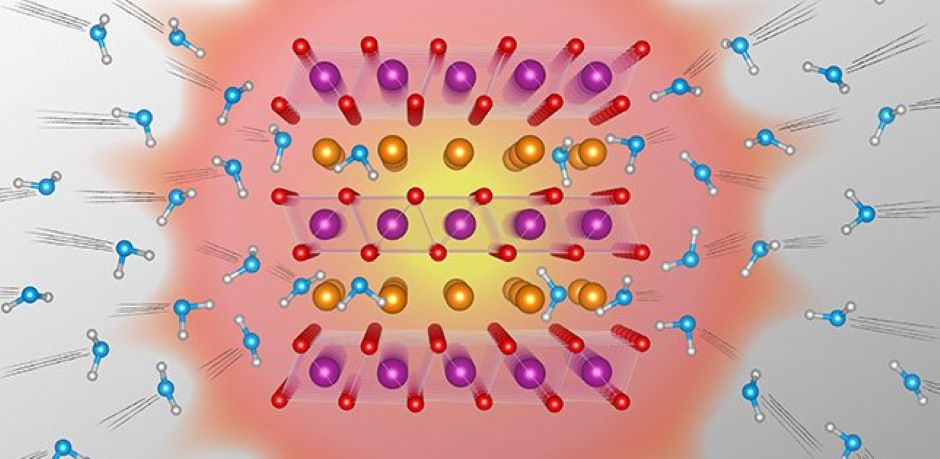
The research, a collaboration between scientists at Tohoku University's Institute for Materials Research and Tokyo-based Rigaku Corporation, is detailed in Nature Communications.
The researchers used a layered manganese oxide mineral containing potassium ions and crystal water. The mineral is said to be quite similar in composition to birnessite, which is commonly found on the Earth's surface. The team fabricated their compound in the form of an insoluble black powder and then examined its crystal structure using an X-ray diffractometer and a transmission electron microscope. They then examined how the compound's structure changed when heated or cooled, and how much and how quickly heat energy was stored and released.
Heating the material up to 200︎oC dehydrated it by giving its stored water molecules the energy needed to be released into the surrounding atmosphere. When the dehydrated material was then cooled below 120︎oC in a dry container and then exposed to humid air, it absorbed water molecules and released its stored heat.
"This 'intercalation' mechanism, where water molecules are reversibly inserted into a layered material, is very advantageous for heat storage," said Tetsu Ichitsubo, a materials scientist at Tohoku University. "It is very fast, reversible and the material's structure is well maintained. Also, oxygen in the atmosphere doesn't degrade the layered manganese oxide crystal and water doesn't dissolve it. This makes it an excellent candidate for waste-heat reuse in industrial settings."
According to Tohoku University, 'birnessite-type layered manganese dioxide with crystal water' demonstrated better all-round performance compared to other compounds currently being researched for heat storage purposes.
"Our material has a long lifetime, can reversibly store and release large amounts of heat per unit volume, and rapidly charges and discharges," Ichitsubo said in a statement.
The researchers will now work on increasing the amount of water molecules that can be accommodated by the material in order to increase the amount of heat energy it can store.










CCC Report Finds UK Climate Targets Still Within Reach
In 1990 67% of the UK´s electricity came from coal-fired power stations and even without renewables the transition to gas was a major contributor to...